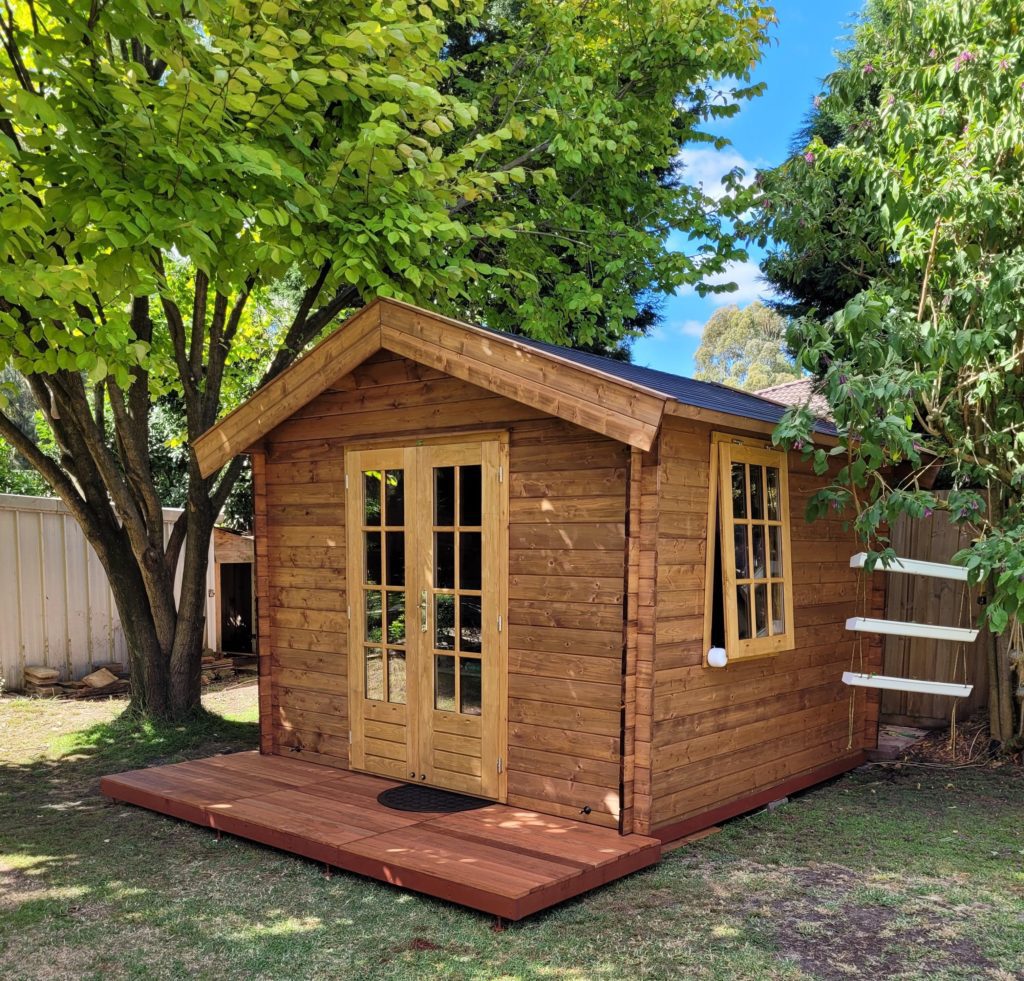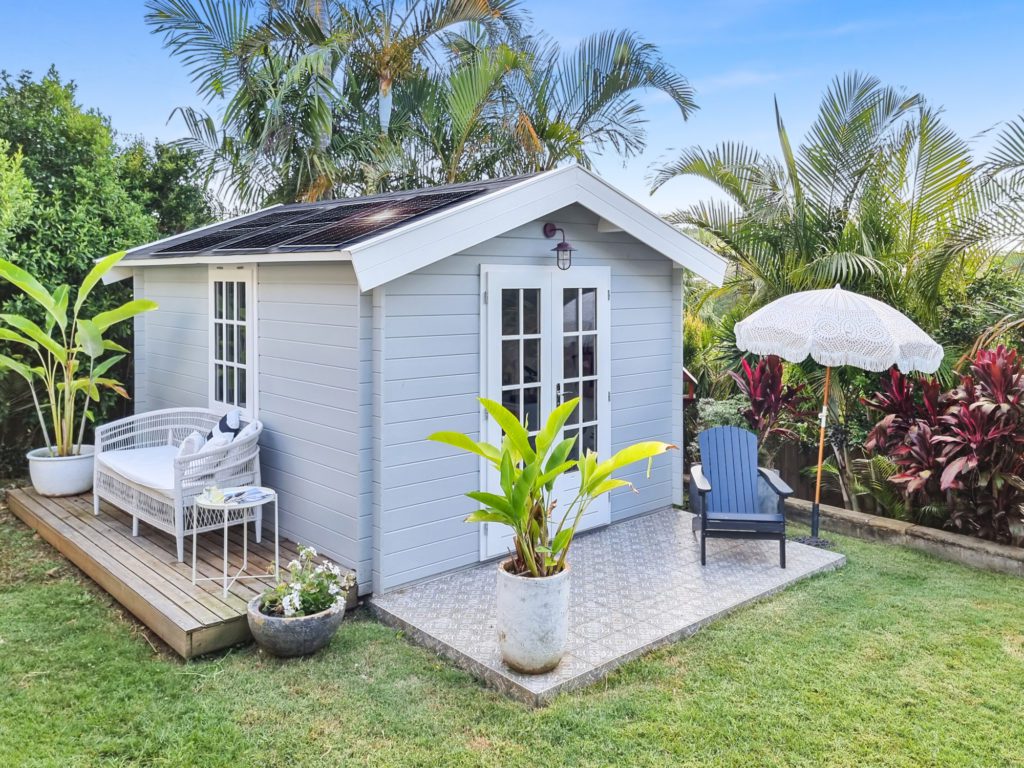
Adding solar power to your Tiny Home or Shed is a clever choice for providing low-cost renewable energy for the next twenty-plus years. Solar is low maintenance, generates no carbon emissions, and saves money on your electricity connection and monthly power bills.
Pricing varies depending on what you want to power and when. If you’re only looking to power a few lights and maybe a laptop in a small shed, the solar kit could cost as little as $1,500 (excluding installation)
However, if the property is in a remote location and more power is needed, like for a Tiny Home, an $11,000 Off-Grid Solar Kitset is likely a great option, For example, the Waihi Kitset from AA Solar is suitable to power: LED lights, a small under-bench fridge (like an energy-efficient option from Dometic), an energy-efficient TV, a small washing machine and other small appliances with power ratings under 1000W. It even provides a day of backup power for those dark and stormy days with little visible sunlight.
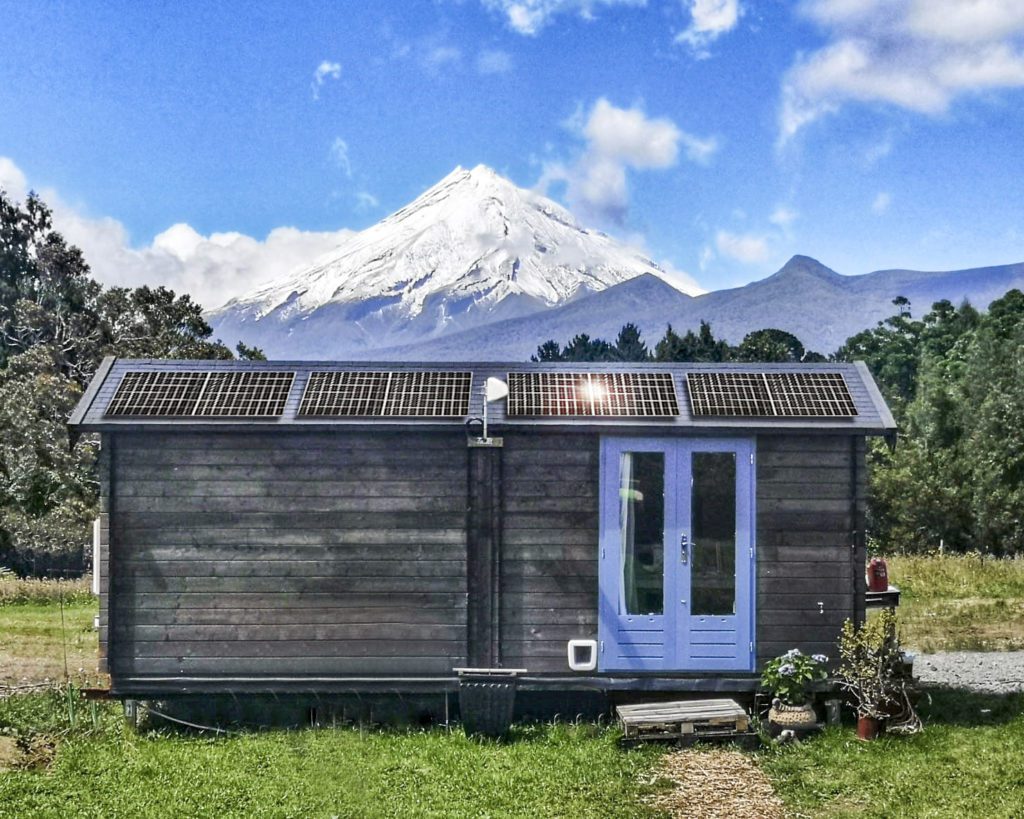
When is Solar Energy A Great Option?
Unsurprisingly, solar electricity is all about access to daylight. Solar panels need unobstructed access to light, without shading from trees and buildings. The ideal configuration is a North-Facing Roof with a 40 to 55-degree pitch (the ideal pitch is impacted by latitude). Still, many different configurations are highly successful as some solar panels are viable on roofs with anything more than a 3-degree pitch.
Less common knowledge is that solar panels can generate electricity even on dull and rainy days! Overall, solar works best when combined with gas cooking, hot water, and energy-efficient appliances to get the most out of your setup.
When Should Solar Be Avoided?
Solar is not a great option if you are nestled under trees, in a deep valley with limited/reduced daylight exposure, or if it has a purely Southern aspect. The intensity of your power draw requirements also impacts suitability. For example, you would not use solar to power high-draw appliances like a pottery kiln or an induction oven
Solar Installation Options
There are various solar installation options available; The simplest and most cost-effective option is to install solar panels on your roof, keeping in mind that your power generation is limited to the size and number of solar panels that can fit on your roof area. 90% of the time, a roof is excellent, but if you are looking for more power or if your roof is impacted by shade, the Solar Panels can be installed on a neighbouring roof such as your home or garage, or if there is no suitable roof space, they can be ground mounted.
There are three main solar options to consider:
- Grid-Tied Solar Systems
- Hybrid Solar Systems
- Full Off-Grid Systems
Which solar power option is best depends on when and what you use your space for and the availability of grid power at your location. Let’s look at each of these options a little more…
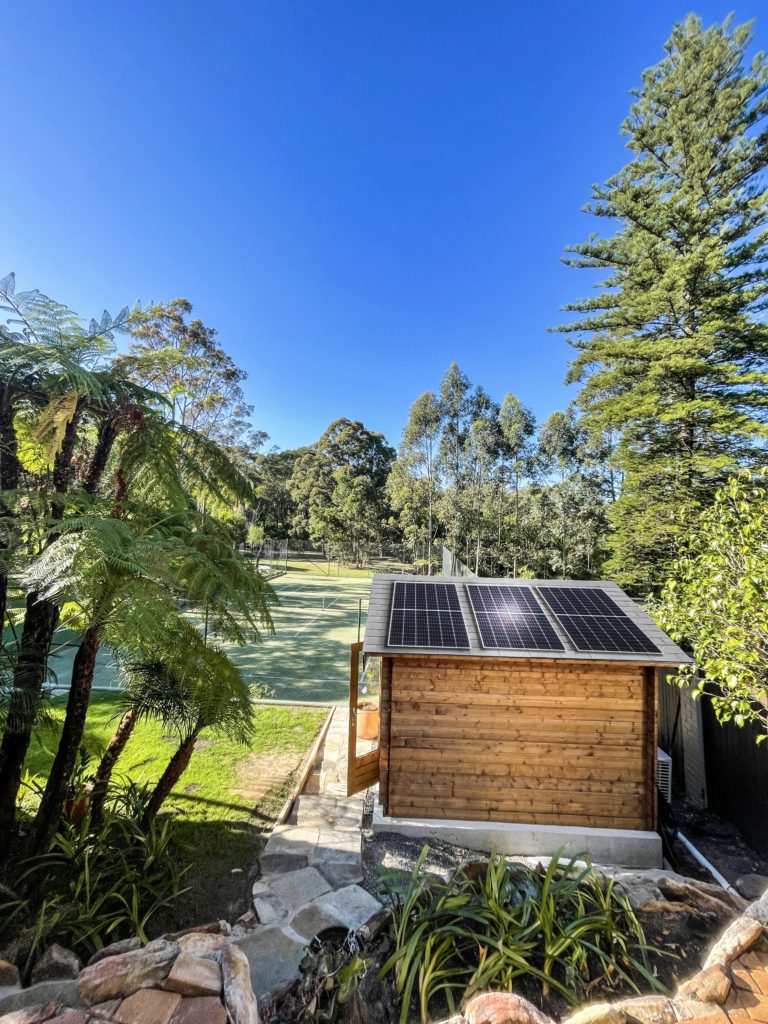
1. Grid-Tied Solar Systems
Grid-Tied Solar Systems are the cheapest option because additional electricity is drawn from the Grid instead of batteries when solar energy is insufficient. A Grid-Tied Solar System is an excellent option if you use the property mainly during the day as a home office or art studio and have ready access to Grid Power. However, if you have power outages or want to use it at night, a Hybrid option is worth considering, particularly if you would like to reduce monthly power bills even further.
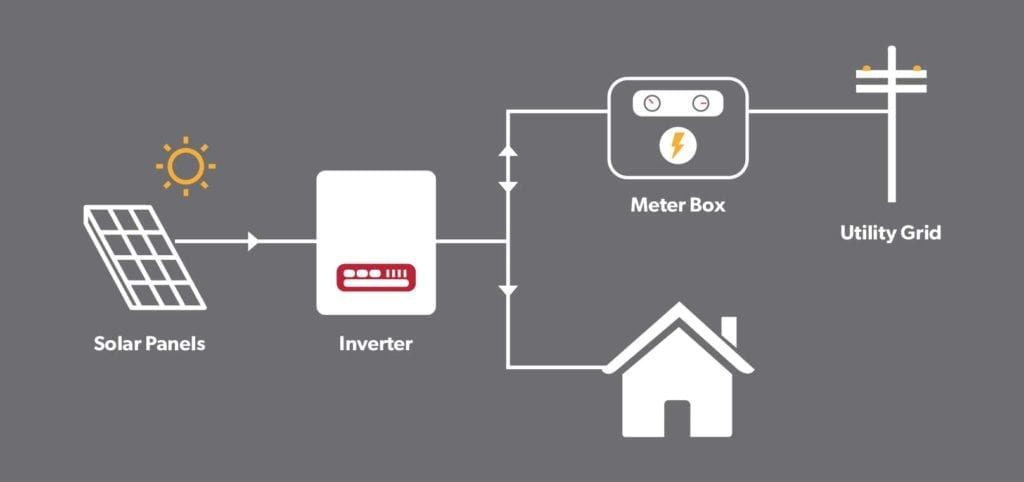
2. Hybrid Solar System
Hybrid Solar Systems use a combination of Solar Power, Batteries and Grid Power which means using solar power day and night while having the security of Grid Power when your power needs are high or during prolonged periods of dark stormy weather. The great thing about a Hybrid System is that it can be programmed to provide emergency power when the Grid goes down for a few essential appliances. We often see this option for Granny flats, teenage retreats and home businesses.
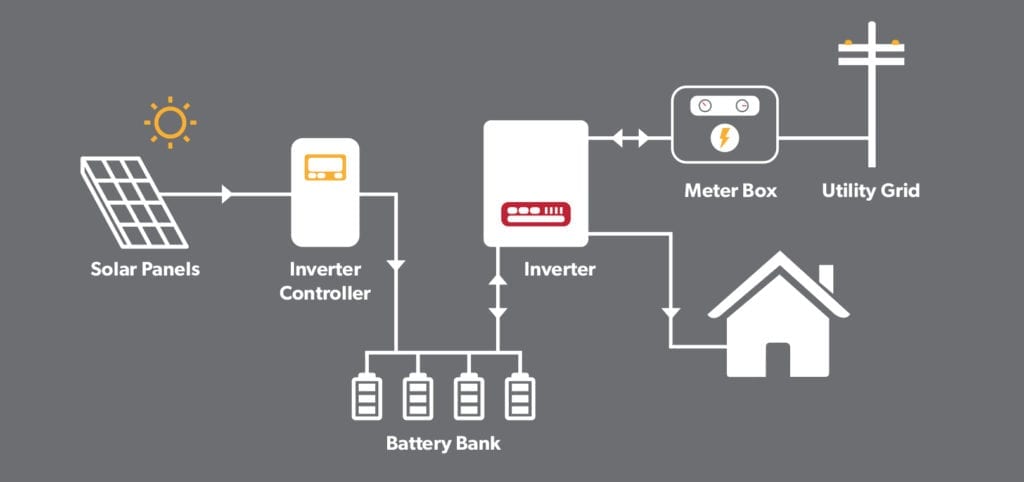
3. Full Off-Grid Systems
Off-Grid Systems provide the ultimate freedom where your location is not constrained by access to the electricity grid. And best of all, you will never get a power bill and will be completely unaffected when the Grid goes down. For anyone planning on living in their Tiny Home year-round, your Solar Specialist will likely recommend a Solar System that includes up to 4 days of autonomy using battery power and a backup generator. To ensure you have electricity even during the darkest/stormiest of weather.
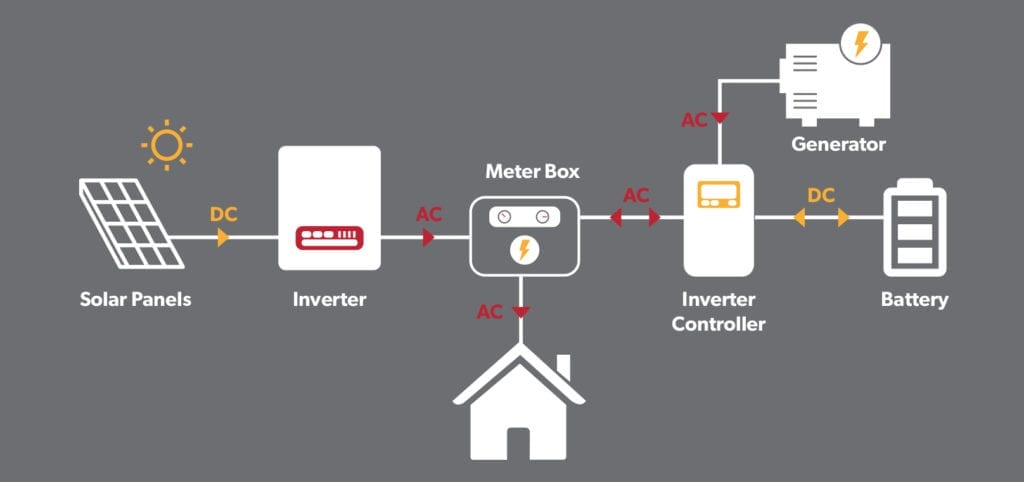
Selecting a Solar Provider
Although the principles of Solar Energy are simple and a system’s ongoing management and maintenance are minimal, it is vitally important to ensure a quality system is specified and installed.
Many companies offer solar power sales and installation in NZ, so when it comes to selecting a solar provider, here are four great points to keep in mind when you’re talking to a potential provider.
1. Proven Longevity – Check that the company has been in business for a long time. You want a supplier who lasts as long as the product they supply. (A good solar system will last over 20 years!
2. Solar Specialist – Your local electrician’s experience and training have almost exclusively focused on supporting traditional Grid Power; even if they have installed solar before, their experience is not comparable to a specialist solar company.
(It usually costs no more to go to a dedicated solar company and get the best advice and solar system within your budget.
3. Bespoke Solution – A correctly specified system should be designed based on your specific power needs and location.
Ensure a qualified Solar Engineer creates your system and that you are not buying an off-the-shelf solution that may leave you underpowered.
4. Breadth of Experience – Ask if the Solar Company offers: Grid-tied, Hybrid, and Off-Grid Solar Systems that can be roof or ground-mounted.
By asking about the breadth of their experience, you will know they can recommend a solution right for you (not just the best solution within the options they sell).
AA Solar are bespoke Solar Specialists who have been specifying and installing solar installations for over 30 years. If you want more information, call them at (09) 887 9767. Interested in the Sheds featured visit Sheshed’s website.
